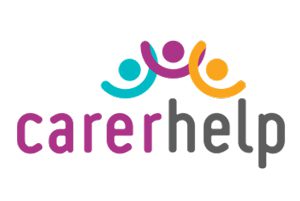Caring for someone at home at the end of life is complicated and you may find it challenging.
Taking on a caring role may not be something that you thought you would do. Before diagnosis, you were a spouse or partner, sibling, child, or friend. Suddenly you were given the title of carer or caregiver, maybe without fully understanding what this new role means or what it requires of you. You may have taken on the caring role willingly, or it may feel like more of an obligation. It is important to recognise that if you take on a caring role, you cannot do it all. It is okay to say no, ask for help and ask questions. Remember knowledge is power.
Whilst there are many benefits of caring for someone at home at the end of life, there are also many challenges. There are things you will need to consider as you manage your daily life. Help is available to assist you to care for someone at home. Having this help can be reassuring but it can also feel intrusive.
CareSearch has prepared a factsheet to help you consider what is involved in caring for someone with a life-limiting illness. Caring for Someone with Life-limiting Illness. They also offer tips on practical caring, considering people’s practical and nutritional needs.
Carer Supports
There are key carer support services who can help you through this time.
CarerHelp
 CarerHelp brings together a range of tools, videos, and information to support carers. CarerHelp has developed five pathways that are commonly experienced over time when caring for someone approaching the end of life: when someone needs care; caring when death is a possibility; preparing for dying; when the person is dying and after caring.
CarerHelp brings together a range of tools, videos, and information to support carers. CarerHelp has developed five pathways that are commonly experienced over time when caring for someone approaching the end of life: when someone needs care; caring when death is a possibility; preparing for dying; when the person is dying and after caring.
CarerGateway

Carer Gateway is an Australian Government program providing free services and support for carers.
They offer a wide range of services including:
- in-person and online peer support groups
- tailored support packages to help with transport, education support, cooking and cleaning services, and assistance with shopping.
- in-person and phone counselling
- self-guided and in-person coaching
- online skills courses to support your wellbeing
- access to planned and emergency respite
Young Carers Network
 The Young Carers Network, a Carers Australia initiative, aims to raise young carer awareness, provide information, and direct young carers to appropriate pathways for support. They enable young carers to engage with each other through a range of opportunities to share and connect. Their website provides links to support services, helpful tips, stories from other young carers and information on financial support, including a bursary program.
The Young Carers Network, a Carers Australia initiative, aims to raise young carer awareness, provide information, and direct young carers to appropriate pathways for support. They enable young carers to engage with each other through a range of opportunities to share and connect. Their website provides links to support services, helpful tips, stories from other young carers and information on financial support, including a bursary program.
